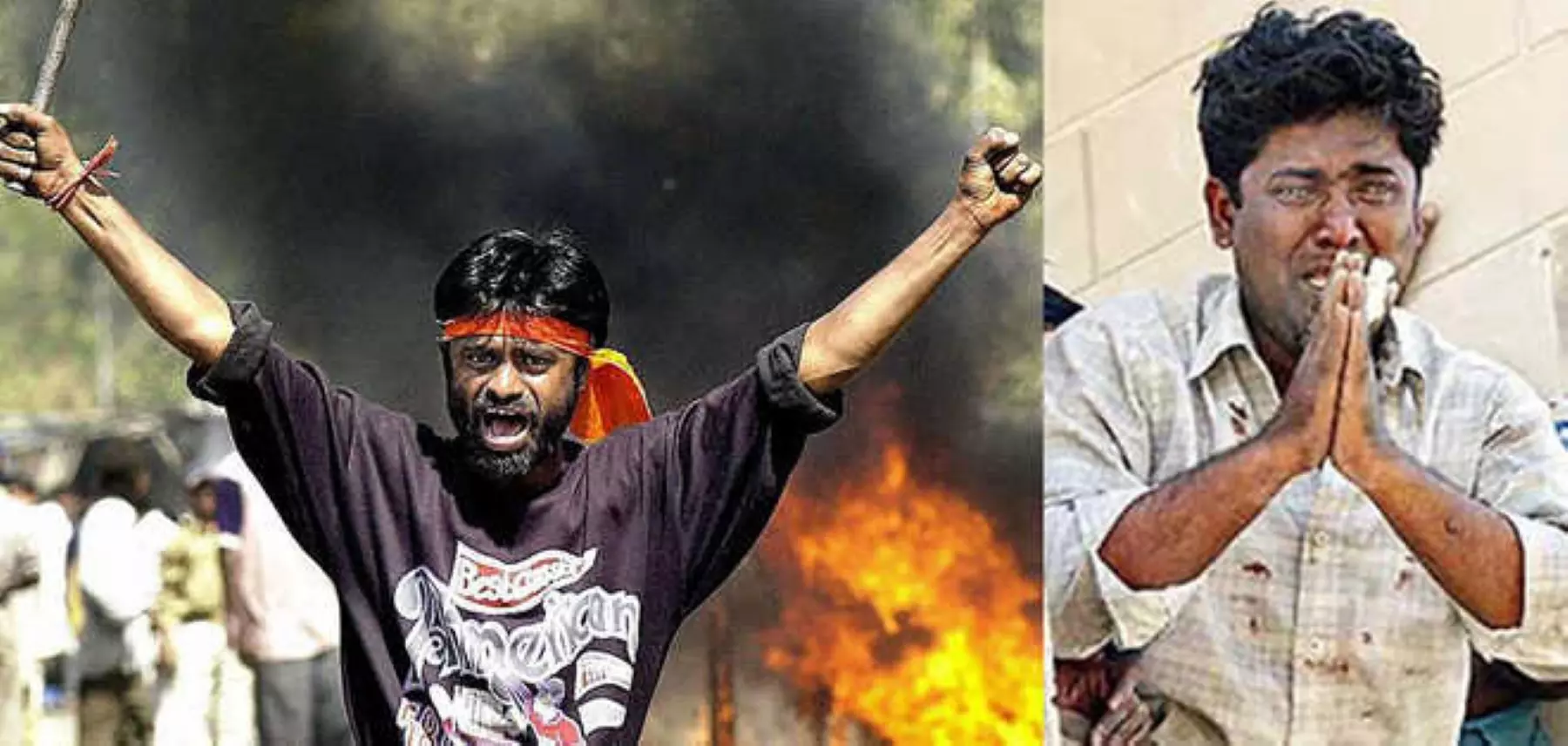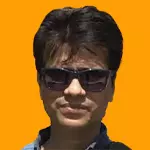
- Home
- India
- World
- Premium
- THE FEDERAL SPECIAL
- Analysis
- States
- Perspective
- Videos
- Sports
- Education
- Entertainment
- Elections
- Features
- Health
- Business
- Series
- In memoriam: Sheikh Mujibur Rahman
- Bishnoi's Men
- NEET TANGLE
- Economy Series
- Earth Day
- Kashmir’s Frozen Turbulence
- India@75
- The legend of Ramjanmabhoomi
- Liberalisation@30
- How to tame a dragon
- Celebrating biodiversity
- Farm Matters
- 50 days of solitude
- Bringing Migrants Home
- Budget 2020
- Jharkhand Votes
- The Federal Investigates
- The Federal Impact
- Vanishing Sand
- Gandhi @ 150
- Andhra Today
- Field report
- Operation Gulmarg
- Pandemic @1 Mn in India
- The Federal Year-End
- The Zero Year
- Science
- Brand studio
- Newsletter
- Elections 2024
- Events
- Home
- IndiaIndia
- World
- Analysis
- StatesStates
- PerspectivePerspective
- VideosVideos
- Sports
- Education
- Entertainment
- ElectionsElections
- Features
- Health
- BusinessBusiness
- Premium
- Loading...
Premium - Events

In 2002, as a young journalism student, I confronted the horror of Sabarmati Express burning and the subsequent Godhra conflagration. Here’s how I processed the news about both
In February 2002, I was a young, earnest and impressionable student of journalism — fresh-faced, naïve and even callow, but full of idealism, and ambition. Like so many of my classmates, I carried with me a notebook — almost everywhere — that was bursting with hopes and ideals, fragments of poems, nebulous, inchoate ideas, and quotes that had struck a chord with me. Also, names of writers I admired, and books that I wanted to add to my little library. And films that I wanted to watch. Music that I wanted to plug into. I wandered around with a belief — alas, tattered now — that stories could change the world and that truth can never be defeated.
I walked the hallowed halls of the Department of Journalism and Mass Communications, Aligarh Muslim University, where conversations were pregnant with the promise of a future built on truth-telling and hard-won convictions. But the Godhra tragedy on February 27, 2002 — The Sabarmati Report, a Hindi film based on the incident, starring Vikrant Massey, is currently running in theatres, following the release of Accident or Conspiracy: Godhra in July — shattered all that, leaving a rupture in my understanding of humanity and, more painfully, in my faith in the world. I remember it like a wound that is raw and unforgettable. The news came at first in whispers. There was talk of a train. A coach of pilgrims. There were murmurs of flames licking hungrily at broken windows and the sickening crackle of human life reduced to ashes.
When news stories became hellscapes
Godhra. At the sound of that name, the world around me seems to collapse in on itself even now. The word carried the weight of everything I thought I knew, but worse, it carried something else, something ancient and terrifying: atavism. An atavistic horror. A return to a savage past we were supposed to have outgrown. I was a Muslim, and that identity had always existed alongside my other selves — student, journalist-in-training, idealist — never weighing me down but woven into my being like a comforting thread. When Godhra happened, it felt like an invisible noose tightening around my neck.
The horror stories began pouring in, leaving an avalanche of grief and devastation in their wake. My classmates were reading the same reports, their eyes wide with disbelief and disgust, but my reaction was different. For me, it was visceral, a quiet implosion. My soul bled as I read about the train burning and the retaliatory violence that swept through Gujarat in the days following Godhra — a storm of inhumanity and atavistic hatred (it’s a phrase that I picked from the news reports and it has stayed with me) that made a mockery of every story I had ever wanted to tell.
Also read I No, Nirmala Sitharaman, patriarchy isn’t a ‘leftist jargon’; it’s the system we live in
The newspapers and magazines, our lifelines as budding journalists, became chronicles of carnage. Words leapt off the pages and burned themselves into my consciousness: murdered, raped, butchered, torched. The news stories became hellscapes. Women and children were slaughtered in the most unimaginable ways, families erased, communities desecrated. I tried to write about it for an assignment, but the pen shook in my hand. Every phrase I wrote seemed trite, almost obscene in the face of so much suffering. Even my diary entries of those days remained blank. How do you translate such grotesque inhumanity into neat paragraphs, into stories that can be consumed over a morning cup of tea?
Godhra deepened the 1992 laceration
The despair was suffocating. It was another of those moments that carved itself into the Indian psyche, like the demolition of the Babri Masjid a decade earlier. December 6, 1992, had marked the first time I felt the enormity of communal hatred. I was much younger then, too young to fully grasp the implications, but old enough to sense the sharp edge of fear in the air, to see the worry lines deepening on my parents’ faces. Babri had been a scar, a painful laceration in the collective consciousness of Muslims in India. Godhra and the brutal aftermath in 2002 deepened that wound, tore it wide open until it felt like it would never heal.
I was living in a paradox, caught between the lectures — dry, didactic, theoretical — of my journalism professors and the grim reality of a country set ablaze by forces who were determined to destroy its secular fabric. I remember how one professor, who had always encouraged us to pursue truth with unflinching bravery, had become quieter in those days. His usual impassioned lectures about the power of the press felt suddenly inadequate, a hollow echo at a time when words seemed to mean so little. How do you maintain faith in the ability of stories to illuminate when the darkness around you is so overwhelming?
A few opinion writers and analysts, well-meaning and kind, tried to express their empathy in their pieces. It must be so hard being a Muslim right now, some of them hinted. The sincerity of their concern stung, even as it warmed me. Hard? That word felt like an understatement. It felt like a betrayal of the real torment. My religion, something I had always carried with pride, now felt like a mark. I remember overhearing a conversation in the university cafeteria. A boy I had shared classes with, someone I had joked with just weeks earlier, said something about Muslims being “troublemakers.” I remember how I bit my lip until it bled, holding back the surge of anguish that bubbled inside me, threatened to drown me.
It was the stories that did the damage
But it was the stories that did the real damage. One day, as I prepared for a class, I found myself reading a report from a respected newspaper. It detailed an incident in Ahmedabad: a Muslim woman, eight months pregnant, had been disemboweled before her family. Her unborn child was ripped from her body and mutilated. I dropped the paper. My hands were shaking so badly that the words blurred together, black ink swirling into an abyss of senseless horror. How do you process something like that? How do you go on believing in anything, in anyone, after reading a story like that?
Also read I How a young Muslim heart found hope and a life lesson in Diwali lights
I remember sitting on the steps of the university library, feeling the cool marbles against my skin. A small group of students nearby were discussing politics, animated and angry. “This has to be a turning point,” one of them declared, as though our country could endure endless cycles of violence and still find salvation. A turning point. I closed my eyes, wishing I could believe them. But the thought of a “turning point” felt like a cruel joke, a mirage in a land cracked and blistered by hate.
Disillusionment doesn’t come all at once. It seeps in, slowly, until one day you wake up and realise that the world you once wanted to save has become unrecognisable. I had arrived at journalism with dreams of truth-telling, of holding the powerful accountable, of shining a light into the world’s darkest corners. But Godhra and the violence that followed felt like a brutal reminder that sometimes, the darkness is too thick to penetrate. The stories piled up, one horror on top of another, until I could no longer separate myself from the suffering.
And then there were the photographs. Images of charred homes, of terrified children, of mothers weeping over the bodies of their loved ones. I saw a picture of a young boy, his eyes wide with trauma, his mouth frozen in a scream. I don’t know his name. I don’t know what happened to him. But that image stayed with me, a memorial of sorts — of the hatred that took a toll on so many lives. Like the images of a fiery, sword-wielding Ashok Parmar, and a hapless Qutubuddin Ansari — his eyes welled-up, fear writ large on his face.
Stories can merely bear witness
In our journalism classes, we were told to strive for objectivity, to keep our emotions in check. But how could I? How could I be anything but wrecked, anything but gutted? One day, I confessed to a friend that I didn’t think I could do it anymore. I didn’t think I could be a journalist, not when every story cut me so deeply. She put a hand on my shoulder and said, “Maybe that’s why you have to keep going. Maybe feeling this is what makes you human.” It was a small comfort, but a comfort nonetheless. And so, I kept going. I wrote my assignments, even when the words felt empty. I read the reports, even when the details made me sick. But the idealism had been stripped away, replaced by a grim determination. I no longer believed that truth always triumphs. I no longer believed that stories could save the world; at best, maybe, just maybe, they could bear witness.
Also read I I was born a Muslim on August 15. Here’s what I feel in Modi’s India on Independence Day
Over 22 years have passed, but the pain of Godhra and its aftermath lingers. Atavistic. That word, so haunting and clinical, is still lodged in my mind. A return to primal hatred, a regression to a state of savagery we pretend we’ve left behind. As I reflect on that time now, I realise that my grief is not just for the lives lost but for the hope that was snatched away, for the innocence that was burned along with so many bodies.
I am older now, perhaps wiser, but the questions remain. How do you tell stories in a world that refuses to change? How do you keep believing in the power of words when they feel so powerless? I don’t have the answers, but I know this: those stories, that pain, that unthinkable loss, must never be forgotten. We owe it to the past and to the future, to bear witness, even when it breaks our hearts.


